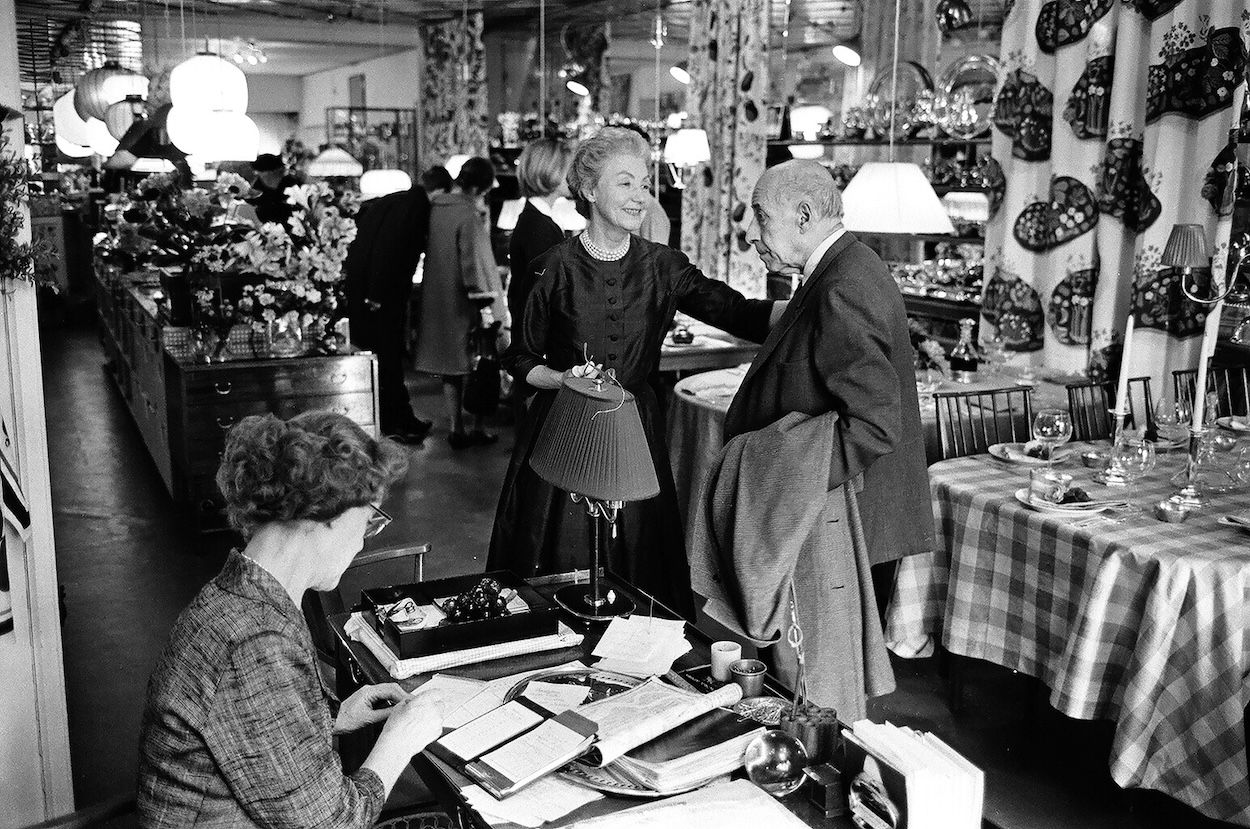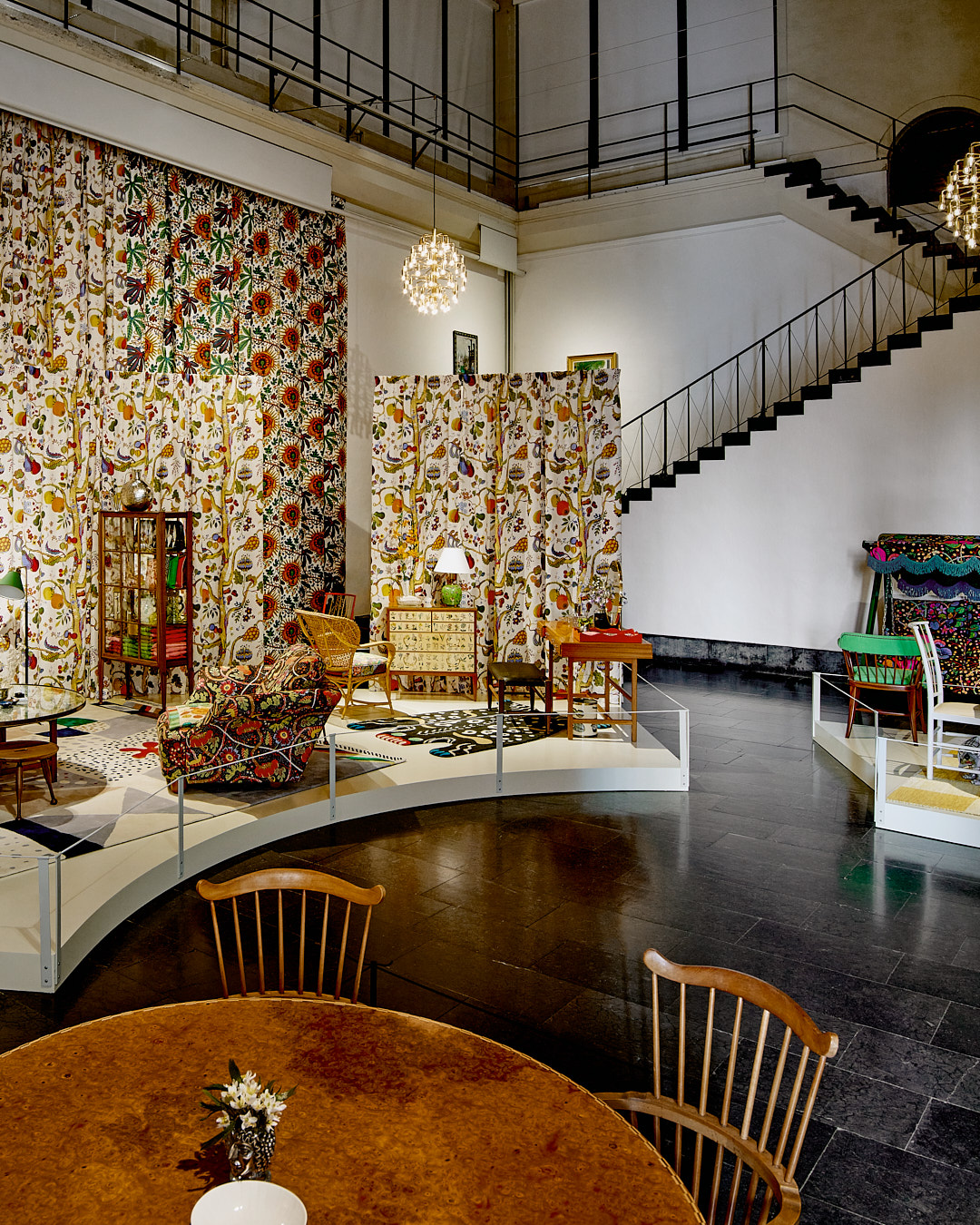When Estrid Ericson founded the Stockholm design emporium Svenskt Tenn in 1924, her attitude toward domestic life was simple: one’s home should be modern yet comfortable, an ever-evolving yet thoughtful sanctuary with the human in focus. Ericson and longtime collaborator Josef Frank’s sly rejection of popular functionalism held remarkably steady over the decades, even as the brand slowly cemented itself as a pillar of Swedish modernism and brought in collaborators like Luke Edward Hall, India Mahdavi, and Margherita Maccapani Missoni. With homewares adorned in and inspired by Frank’s whimsical patterns that float into the fantastical, the ideal Svenskt Tenn home is vibrant yet unhurried.
Devoted followers of this distinctive ethos will delight in “A Philosophy of Home,” a new exhibition illuminating the brand’s heritage and the superbly rewarding partnership between Ericson and Frank. Envisioned by head curator Karin Södergren and London writer Jane Withers, the show unfolds across 13 thematic rooms at Stockholm’s Liljevalchs, the kunsthalle where Frank’s much-talked-about Svenskt Tenn debut was unveiled in 1934. It delves deep into the rich tapestry of Svenskt Tenn’s legacy; select rooms are styled to recount obscure brand lore and display rarely seen archival objects including museum and private loans across furniture, lighting, textiles, and tableware. The throwback is a feast for the eyes, but perhaps the biggest takeaway is how Ericson and Frank’s creativity reverberated widely beyond their own domain—and maybe even into yours.


